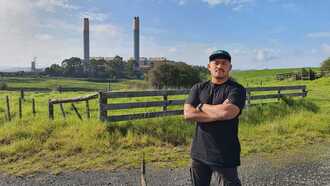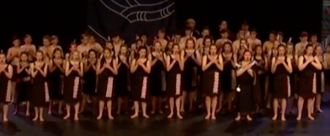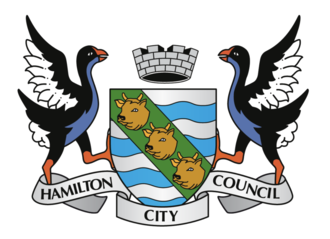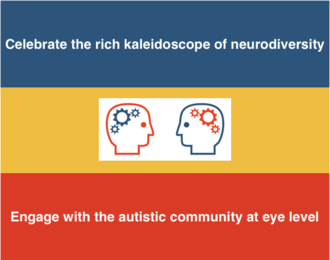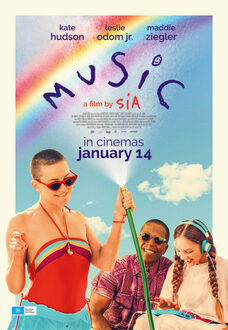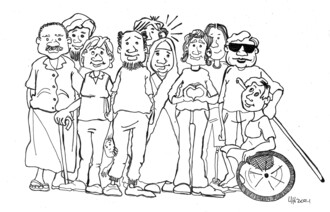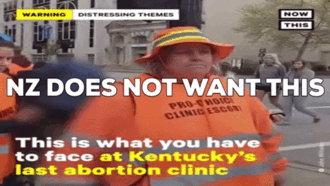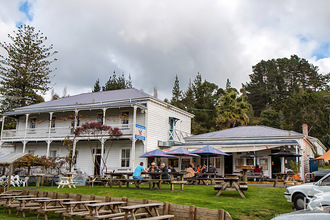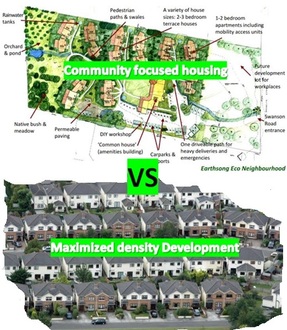-
Power to the people: A right, not a privilege!The energy industry is full of solutions for people AFTER they have felt the impacts of power poverty and AFTER they have been disconnected. What is missing is an electricity retailer specifically designed to support vulnerable consumers, that can work with whānau to prevent those things from happening. The only way that this retailer can exist is if Generators, Government and all other players in the industry commit to work together in the Spirit of Manaakitanga. This is what true partnership looks like between tangata whenua and tangata tiriti. Solving this issue is not one that can be done alone - but one in which Māori must be involved in. Let us demonstrate a partnership our Tūpuna (ancestors), Tangata (people) and Tamariki (children) will be proud of. Power companies can switch off electricity for vulnerable whānau who aren't able to pay their power bill and turn others away if they have struggled to pay their bills in the past. With 17% of people saying they had trouble paying their power bill last year (Consumer NZ, 2020), hundreds of thousands of Kiwis are vulnerable to going without sufficient power to meet their needs, not in the future but right now! According to the ICCC report (2019), if the Government’s 100 per cent renewable energy goal is achieved by 2035, the average power costs for households would increase by 14%. And while we stand with the Government’s goal of decarbonising Aotearoa, we want to make sure policy is in place that means no whānau is left behind. If nothing changes, the amount of whānau living in energy hardship will accelerate. We believe money should NOT be a prerequisite to accessing sufficient energy to keep a whānau warm. No one should have the power to deny a parent the ability to feed their tamariki and keep the whare warm and dry. Over the past year, Nau Mai Rā has proven that if whānau are treated like whānau they will pay their bills on time every time, regardless of their credit history. By allowing us the responsibility to take care of power for vulnerable whānau, no New Zealander will be left out in the cold. Let's work together in the spirit of manaakitanga and ensure no whānau is left behind. Your support of this petition could solve power poverty in Aotearoa. Let us look after whānau Nā tō rourou, nā taku rourou ka ora ai te iwi With your food basket and my food basket, the people will thrive Ezra Hirawani Te Āti Haunui-a-Paparangi / Ngāti Rangi / Ngāpuhi / Ngāti Hako / Waikato Tainui Ben Armstrong Ngāti Hine / Waikato Tainui Read Stuff's recent article here for more information: https://www.stuff.co.nz/business/125262459/many-of-our-energy-assets-are-built-on-mori-land-so-why-do-mori-disproportionately-endure-power-poverty4,293 of 5,000 SignaturesCreated by Ezra and Ben
-
Careers in Kapa HakaThe current issue with recruiting and the retention of qualified and professional kapa haka tutors in schools is a serious concern… Tamariki love kapa haka! The number of students who are participating and passionate about kapa haka is growing all the time! The student's knowledge of Te Reo me ona Tikanga Māori and confidence grow as they learn waiata, haka and other skills. We have seen improvements in the attendance and engagement of many students through a good quality kapa haka group. But finding the right people to fulfil that teaching role is a major and ongoing struggle. The Problem for Kura... As a national education priority (NEG 9 and NEG 10), the ability to find affordable, suitable and committed tutors shouldn't be so difficult. Schools are scrambling around every year to find professional tutors. On more than one occasion we have had people commit to tutoring our groups and then pull out in week one, term one! The anxiety this induces when you have up to 140 kids sitting in a hall ready to learn kapa haka is intense! The solution to this has been employing independent professional tutors. However, they are expensive, especially for smaller schools. Furthermore, the pull between priority curriculum areas and funding Māori performing arts is difficult for principals and boards of trustees. Funding is often prioritised to literacy and numeracy, science and technology, PE and LEOTC (NEG 5). The responsibility for funding Māori Performing Arts is a choice that should not be on the heads of individual principals and boards. As we are bound by Te Tiriti o Waitangi (Article Two), to protect this taonga and this should be done at a national level. Tutors are hard to find and relying on whānau to do the teaching of kapa haka is neither a respectful nor a sustainable option. Once you do find a volunteer (or someone who does the job for koha) the retention of tutors is difficult, life circumstances change for volunteers, more financially viable opportunities come up, new educational opportunities arise and family commitments, at times, take precedent. Many tutors cannot commit (for free) long-term to a school program. The problem for professional tutors... To run a free-market-style business funded by schools can be difficult for kapa haka experts. Particularly in relation to supporting families and maintaining a start-up business model or in the long term. Tutors can only charge what schools can afford and need to do all the mahi of running a business, understanding finances and organsing amongst many schools. They, therefore, need to have a certain amount of energy, confidence, and know-how to take these risks to manage this effectively. This is not an easy model for many people to set-up and run long term. As stated previously, schools are left to rely on whānau who volunteer or are given koha. This often puts pressure on whānau who have their own work and family commitments. It is not respectful to ask for so much for free, in a world where money is the formal acknowledgment of value. This feels disrespectful and is disheartening, to say the least for those who are asked to give so much for so little. On top of that, some tutors may not have the teaching skills required and it can be a daunting task for a whanau member (or two) to tutor a large group of children. There is usually little or no teaching training for these people and it can be seriously challenging for them. In summary, there are few or no professional and secure career pathways for people skilled in kapa haka. We need to create a system where people can achieve success in a Māori world and then have that honored with financial stability and security in the wider community. In short, the current system is not respectful of Māori mahi or the enormous value and importance placed on kapa haka by our tamariki. The schools are doing the best they can to fill this gap, but it shouldn't be this difficult to honour our commitments to Te Reo me Ona Tikanga Māori, me, Te Tiriti o Waitangi. We are calling that the taonga of kapa haka is protected through supported career pathways, that our tamariki have no obstacles to participation and that the Government and Iwi in partnership have a discussion and make a plan to implement structures for a long term tautoko of kapa haka. So join us to fight for paid professional kapa haka tutors in every school!333 of 400 SignaturesCreated by Anna-Marie Stewart
-
Update the Hamilton City Emblem!The current emblem was introduced in 1946 and represents the colonial history of our city as a settler military post in the 19th century. It does not align with the Treaty of Waitangi and Maaori representation in our current emblem is non-existent. Our emblem does not depict any partnerships and the crown is the main overpowering feature in the emblem. It does not hold any in-depth cultural, metaphorical or traditional meanings and is an emblem that was introduced almost 100 years ago!!! Kirikiriroa means 'long strip of cultivated land' and it represents the abundance of people who shared, took care, and lived off the land before colonisation. Gradually, like our city name or street names around our city Hamilton was overpowered by European settlers who made Kirikiriroa their own. Updating our city emblem and discussing it's relevance is important because it currently represents and supports years of our city’s colonial, traumatic history where indigenous people had land taken, were oppressed, and even murdered. Some people might think something small like an emblem doesn't matter, but the history and significance behind something so small has been the meaning of life or death for many. Today, Hamilton is the youngest city in New Zealand and one of the most multicultural cities with more than 160 ethnicities. We are a vibrant young & developing city and we need an emblem that reflects this! We want an emblem that we are proud of. We want an emblem that we understand and can relate to. We want an emblem that represents maaori, our city, and our diverse multicultural population. We want our city emblem to represent 'Kirikiriroa'. We want to have an emblem that we can share with pride! Sign to call on our Council to update City Emblem! To be able to present the petition the Council requires over 150 signatures with postal addresses, to show signatories are residents. Your address will be supplied to Council but not be made public.455 of 500 SignaturesCreated by Jahvaya Wheki
-
Inquiry into the consequences of conversion therapies for autistic childrenWe all celebrated to hear of the legislation being enacted that bans conversion therapy after years of campaigning by the LGTBQI+ community. However the win does not go far enough. The same underlying techniques of torture and dehumanising coercion continue to be applied to autistic children. Any legislation which is so selective as to ban only “conversion therapies” that target a person’s sexual orientation, gender identity, or gender expression is in itself discriminatory. If a government moves to ban the mistreatment of one minority in a particular manner but neglects similar mistreatment of other minorities it is more than negligent, it is actively legitimising prejudice. If a ban were to go through with specific reference to sexual orientation, gender identity, and gender expression alone, it would be much like an anti-racism bill that protected black people but left all other people of colour out in the cold. Instead of acknowledging anxiety and depression as the result of the highly stressful environments and dehumanising treatments that autistic children are exposed to, many "autism professionals" prefer to treat autism as the 'problem', and then use medication as treatment. The message to autistic people is very clear: 'you are not normal and we need to fix you'. This is wrong. The University of Auckland and other institutions in New Zealand still teach ABA. In Aotearoa certified ABA practitioners continue to advertise their services for children with “compliance” problems. Many autistic people who have been subjected to ABA and similar “treatments” end up with PTSD. Multiple studies confirm that the suicide rates for autists are are more than twice (1.9 to 9.9 times) the rates found in the general population. It is so important that people, and especially parents of autistic children, start listening to the lived experience of autistic adults. Many of us are in our 50s, 60s and 70s. We all started out as autistic children, without formal diagnosis, and without intensive ABA "therapy". We have found our path in life, we've experienced decades of discrimination comparable to the level of discrimination against LGBTQIA+ people 50 years ago, and we have remained autistic throughout. Neurodivergence is at the core of creativity. Autistic people don’t play social games, instead we actively resist them. Autistic people are best understood as the agents of a well functioning cultural immune system within human society. What are conversion therapies? Conversion therapies are “normalisation” therapies rooted in the techniques of torture and dehumanising coercion developed by Ivar Lovaas and Burrhus Frederic Skinner. The same techniques that are used by ABA therapists have been named as abusive in domestic abuse prevention legislation. Dehumanising abuse of all children, including autistic children, must be made illegal. The actual results that are achieved with conversion therapy include depression, PTSD, suicidal ideation, social expectations that are toxic for autistic people, as well as environments that create sensory overload. Why do we propose to consider a ban of all forms of conversion therapy? Conversion therapy never achieves its stated goal of “normalising” LGBTQIA+ or autistic children. Instead there is overwhelming evidence that conversion therapy results in extreme levels of irreversible trauma. The autistic population is much smaller than the LGBTQIA+ community, but the intersection between the two is significant. Compared to the general population, autists are 7 to 8 times more likely to identify as LGBTQIA+. It makes perfect sense to tie legislation around the protection of LGBTQIA+ rights to the protection of the rights of autistic people. What practices would need to be considered as part of a ban? Of the many labels used “Applied Behaviour Analysis” (ABA) and "Positive Behaviour Support" (PBS) are the most common ones. It is important to focus on all “therapies” that are rooted in the techniques of torture and dehumanising coercion developed by Ivar Lovaas and Burrhus Frederic Skinner. This initiative is part of the global Ban Conversion Therapies project (https://autcollab.org/projects/ban-of-conversion-therapies/), which keeps track of all the bans of conversion therapies that are already in place and all initiatives towards bans. More background information has been compiled by the Autistic Collaboration Trust in collaboration with the autistic community in New Zealand on the following web page: https://autcollab.org/2021/03/10/banning-autistic-conversion-therapy-in-nz/.672 of 800 SignaturesCreated by Jorn Bettin
-
Reclassify Autism and ADHDQuick and accurate health diagnosis means people are able to access the medical attention and medications we need with respect and speed. However in Aotearoa the approach to ADHD/autism is out of date as it is still classified as a mental health disorder. There is a serious lack of diagnostic support. This means that people are not correctly diagnosed. The diagnosis process is currently not achieving the desired outcomes and affecting daily lives of those seeking a diagnosis of autism / ADHD. People with ADHD/autism can feel stigmatized to be treated as a mental health patient. It also overloads the mental health system unnecessarily. This is a major public health issue affecting all ethnic groups, social classes and occupational groups: and this found in all government departments. Reclassification will give recognition that autism is a real inherited neurodevelopmental disorder and reduce stigmatisation. When ADHD/autism is correctly classified as a neurodevelopmental disorder it means primary medical professionals such as GPs are able to diagnose, authorize medications and care for patients. If ADHD is treated, then it has been proven that Autism is also often treated. This in turn positively affects the children and adults and their families and education, employment and in social situations. NZ Disability Advisory Trust is the organization leading this petition as voice and lived experience of having staff with ASD Diagnosis.3,247 of 4,000 SignaturesCreated by NZ Disablity AdvisoryTrust
-
Ban the showing of Sia's movie "music" in New Zealand cinemasHere's why. Music does not aline with our values in New Zealand. It is discriminatory and has the power to change our society for the worse. The first problem that can be seen is blinding. Maddie Ziegler, a neurotypical actress is playing the lead role of Music, an autistic young girl. Ziegler mimics stereotypical behaviours of an autistic person, such as stimming. Given that Ziegler herself is NOT autistic, watching her stim and be paid for it has been described as an insult by many autistic people. Whilst many people would have been alienated for stimming in real life, Ziegler is being paid for forcing the natural behaviour of an autistic person. A second problem is that if in one of the first scenes, Music is launched into a colourful world of flashing lights, something that has been described by Eden, author of the autism self-advocacy website autisticats as a "sensory nightmare." The flashing lights make the movie totally inaccessible to people who have sensory problems, or people that have photosensitive epilepsy, a common trait within autistic people. Yet another problem within the movie is that Sia has not consulted with autistic people, and has no idea what she is talking about, being a neurotypical person herself. She continuously misrepresents the autistic community and one scene that highlights this is the fact that she has portrayed Music as a character with a special interest in dogs. Music reads a book that is big and bulky and has complicated vocabulary, yet her AAC device (A device that enables nonverbal people to communicate) has only simple preprogrammed words like "happy." Despite the fact of showing Music as a highly literate girl, with her own thoughts, the only insight that we get into Music's mind, is "nauseating dance sequences". There are so many more problems, both where Sia has been racist, ableist, and more that you can read about on the autisticats website which you can find here,: (https://theautisticats.weebly.com/) but I haven't even begun to address the most fatal mistake of the film. In many scenes, Music is having a meltdown caused by sensory overload and starts flailing her arms around. The response of one of the characters is to jump on top of Music and hold her down in a restraint called prone restraint. This restraint is deadly as it can cut off airways, and the fact it is being shown could normalise this restraint causing people to use it on friends and family who are autistic and may not be able to tell them to stop if they are experiencing sensory overload. With all of these problems of the movie, it is clear that New Zealand should not show this movie, or we will increase the dangers towards disabled people. This movie could very much increase fatalities, decrease acceptance and understanding of autistic people, and put us back many years.47 of 100 SignaturesCreated by Maya Ando
-
Activate the Emergency Sirens in our Community!We have a shared vision of our Mercury Bay and surrounding areas that is safe, and feels safe in any emergency. Emergency sirens are a crucial component of our alert system for the Community. A lot of thought, discussion and research went into implementing them. The elderly, parents, workers, school children, outlying areas - the Community relies on the sirens and they have been the most reliable medium to alert people. Our Community cares, and many when hearing the sirens immediately act to assist others in need also. Deactivating our sirens not only affects people’s lives, it actually puts them in jeopardy in critical situations. There have recently been 3 major earthquakes in a 6-hour period and our community was alerted three hours after the last earthquake of 8.1. We request this decision be reversed and real community engagement is invited before the siren system is deactivated or any changes implemented. Community consultation is essential for everyone to feel safe and the best decisions made. We understand the Council is also interested in safety and are also making decisions based on what's best for the community. We have heard that: • 18 of the 27 sirens in our area are non-compliant with FENZ (Fire and Emergency) so have to be deactivated. • The coverage is patchy due to nature of the hills. • To get very good sirens will cost $5-6 million. The Council wants to explain to communities that sirens have 44% coverage and phone alerts have 93%, which still leaves some people out, but they are going to launch education that you do not wait for advice - "if long and strong get gone" and help your neighbours. We consider sirens an essential part of any emergency system for an empowered Mercury Bay community to ensure its safety. Sign to bring our concerns to Council to keep our emergency sirens.1,879 of 2,000 SignaturesCreated by Linda Cholmondeley Smith
-
Disabled people deserve their full equitable rightsEveryone should feel included in our society and have access to opportunities. The Government has a responsibility to ensure disabled people can access their full and equal rights. They can do this by ensuring the Ministry for Disabled People is led and run by disabled people. This will enable a society where disabled people can be fully included to be able to fully participate. Disabled form 24% of Aotearoa’s population yet experience inequitable access to health and disability services, education, a lack of accessible housing, lower employment statistics and struggle to break out of poverty through no fault of their own. There are many barriers disabled people face because society is built inaccessibly. For too long disabled have been ignored and denied equitable access and it is long overdue to bring them in from the cold. The Ministry of Social Development and Ministry of Health announcement of a non-disabled person, in the form of career official Justine Cornwall, to head the establishment unit of the new Ministry for Disabled People is deeply concerning. Disabled are generally unhappy that the new transitional director is not disabled and the voice of disabled is not present. Nothing is transparent and open which is concerning disabled that this will be led but from a non disability framework. We believe that while the position is a fixed-term role, the Establishment Director will be critical in setting a culture of inclusion and accessibility that is different from the judgemental, patronising culture of the past. For the sake of authenticity, a leader who identifies as a member of the disability community should have been in that role. However, the hope is that the appointment of the permanent head of the ministry will lead to a disabled person heading it. We want nothing about us without us, including in the development of the new Ministry. Please support our petition to help us gain full, non-disabling access to society. Remember disability is the only identity that does not discriminate.4,731 of 5,000 SignaturesCreated by Huhana Hickey
-
Protect Abortion Services from HarassmentAbortion is safe, routine, legal health care in New Zealand. But it is not treated like other kinds of health care, because anti-abortion busybodies are allowed to harass people who receive abortion care, and those who provide it. A safe area is a designated space around an abortion service where anti-abortion activists are not allowed to harass people. They are often measured based on a radius from the door of the facility. The maximum radius would be 150 meters. Outside that area anti-abortion protesters are free to do as they like - but inside the safe areas they cannot target people trying to mind their own business. The abortion law reform bill last year passed without safe areas, because of a procedural error. This needs to be rectified so that people can go to their medical appointments without being bullied and abused. But the process the amendment bill sets out for creating a safe area is needlessly complicated. The process in the bill to get just ONE safe area requires an Order in Council on the recommendation of Cabinet's busiest minister (the Minister of Health) in consultation with Cabinet's second busiest minister (the Minister of Justice). Realistically, how many times is THAT going to happen? How many people have to suffer abuse and intimidation before a safe area is granted? Shouldn't the law prevent harm in the first place? We want everyone who needs abortion care to feel safe going to their medical appointments. We want everyone who provides abortion care to feel safe at their jobs. We want safe areas to be established around every place where abortion is provided from assent. The select committee can help make that happen by recommending a change to the bill, if we tell them that is what the people of New Zealand want. Let's tell them loud and clear. And then we need to make sure the bill passes! https://www.parliament.nz/en/pb/bills-and-laws/bills-proposed-laws/document/BILL_99649/contraception-sterilisation-and-abortion-safe-areas2,517 of 3,000 SignaturesCreated by ALRANZ Abortion Rights Aotearoa

-
Deplatform Sia's ableist movie 'Music'This film is ableist and includes the torture of Autism Spectrum Disorder people with a restraint method that has caused death and is a cause of massive trauma for those who have survived it. I'm really terrified about the underdiagnosis of autism. I spent 36 years not getting diagnosed for it because of media portrayals like this that are inaccurate and harmful. The fact that this has been greenlit by NZ's cinema complexes is highly disturbing. This will do damage to the ASD community as well as prevent people from getting treatment for ASD. The under diagnosis of ASD because of bad science and media portrayals has been labelled a "lost generation". You can read a harrowing paper on the effects here in a very accessible format for non-science people: https://www.liebertpub.com/doi/full/10.1089/aut.2019.006915 of 100 SignaturesCreated by Rory McCarthy

-
Puhoi Pub - Say no to racismWe agree our history needs to be known and understood in order to ascertain where we have come from, nevertheless, we also need to acknowledge our controversial colonial past and that the views of yesterday were demeaning, insulting and harmful to some. The mementos of that time should be acknowledged but not necessarily commemorated and promoted. Racism is unfortunately alive in present day Aotearoa, just as it was 100 years ago. Casual racism is still racism. We live with the effects of colonisation every day and therefore we hold a deeper understanding of how history has disproportionately disadvantaged marginalised communities. We need to be actively ensuring we promote positive environments that encourage inclusivity and diversity and maintain an anti-racist stance. We invite the Puhoi Pub to be an example in the way it shares its rich history with the general public. We support the call from the Race Relations Commissioner to remove the bullock horns. We ask the Puhoi pub to celebrate its history in ways that cause no harm. For more on the history of the naming of bullocks, Scott Hamilton: https://twitter.com/SikotiHamiltonR/status/1350646879550271491 Puhoi Pub renames its 'racist' bullock horns, calls backlash 'desperately stupid' https://www.newshub.co.nz/home/lifestyle/2021/01/puhoi-pub-renames-its-racist-bullock-horns-after-backlash-from-the-desperately-stupid.html161 of 200 SignaturesCreated by Matthew G
-
Enable sustainable community focused housing over disconnected housing developmentsOur concerns aren't isolated but sit amongst a greater context of unease. Other communities in Christchurch are confronted with the same problems and concerns as ourselves, e.g. We are affiliated with groups around the country who advocate for community focused housing including; https://www.commonground.net.nz/?r_done=1 Our shared vision is thriving communities of connected people in healthy ecosystems within a vibrant local economy. Many people who hold this neighbourhood dear to their hearts are community builders who work at creating more connections between people. What we propose is the possibility of being intentional with the design of 74 Domain Terrace. It is possible to design a housing development that creates a diverse community attractive to people from a range of ages with a variety of skills and strengths. This has the possibility of becoming an “intentional community’ where members/residents communicate with and care for each other. Such a community would be inclusive of all and everyone’s needs. The elderly need not feel isolated, and young families could experience support around them for raising children in a whanau friendly environment. Imagine creating a village to wrap around our children and the most vulnerable. Our environmental concerns are just as important to developing a flourishing community as our concerns for people. Care for the land on which we live is integral to our goals. Hence our plea for the trees and the ecological communities that they sustain. Dr Colin Merck, locally renowned ecological scientist, has conducted urban biodiversity studies in this area. https://www.linkedin.com/in/colin-meurk-1284329/?originalSubdomain=nz The trees make a significant contribution to an unusually diverse range of bird life. Local residents, some seasonal, include little owls, kingfishers, bellbirds, fantails, grey warblers, paradise ducks, greenfinches, chaffinches, magpies, spur winged plovers as well as a large population of blackbirds and more common varieties like the sparrow, thrush and starling. Not forgetting the much-loved Avon hybrid ducks. The topsoil of 74 Domain Terrace is precious. The property was originally a chicken farm. The soil has never been turned or sprayed. It has supported a range of animals for many decades. Most recently horses, sheep, free range chickens and rabbits. As such it is extremely fertile and likely to be supporting populations of the foot long native worm and leaf veined slugs as does the adjoining property at 80 Domain Terrace. To leave this taonga solely in the hands of developers is to sign a death warrant for so much. Within 24 hours of the auction an arborist entered the property, without the permission of the residents, to establish a quote for the removal of the trees. The loss of the trees will have a huge impact on the local environment and community. Without these particular trees, in which they currently roost, the little owls are unlikely to relocate and will inevitably die. IT is these trees that resulted in Domain Terrace being nominated as one of the ten most beautiful autumn streets in the city. Destruction of the trees on this prominent bend would destroy the whole ambience of the street and the balance of vegetation between The Domain and privately owned land. As with all similar developments the topsoil will be excavated and stripped depriving the property of an entire ecosystem. Most importantly what will die is POSSIBILITY. The possibility of developing housing solutions in partnership with diverse stakeholders that meet the social, ecological, cultural, and economic needs of the people living there. Our desire is to have the housing company discuss their plans with the community and collaborate on what type of development best contributes to creating a sense of connection and wellbeing within the community. If the housing company can’t see sufficient profit from plans that meet the community’s needs a collective of residents is willing to buy the property back at cost price and become the principal actors of the change they want to see happening democratically in their neighbourhood. Sign our petition to have our voices heard by the Christchurch City Council. Help stop the development that threatens our neighbourhood character and values. Help bring forth a true community focused sustainable housing alternative from the competitive housing crisis which builds up the inequalities that ravage our country. PLEASE SIGN OUR PETITION! https://our.actionstation.org.nz/petitions/community-focused-housing-on-domain-tce Watch this space! It is our intention to oppose similar disconnected housing developments in the area in our quest for a more workable, holistic living environment for all our residents.289 of 300 SignaturesCreated by ANTOINE HOULE

